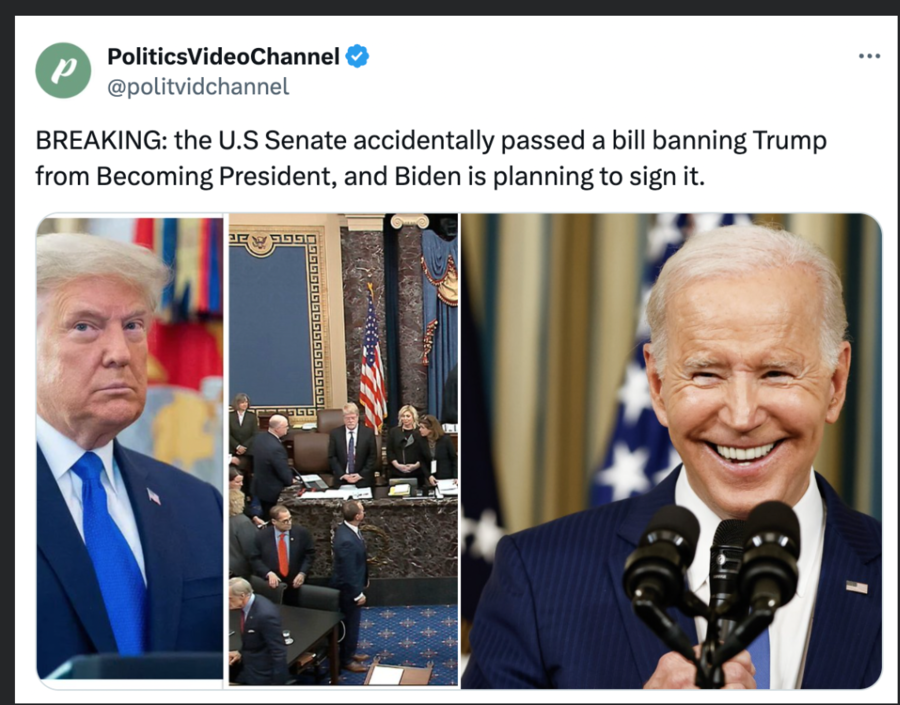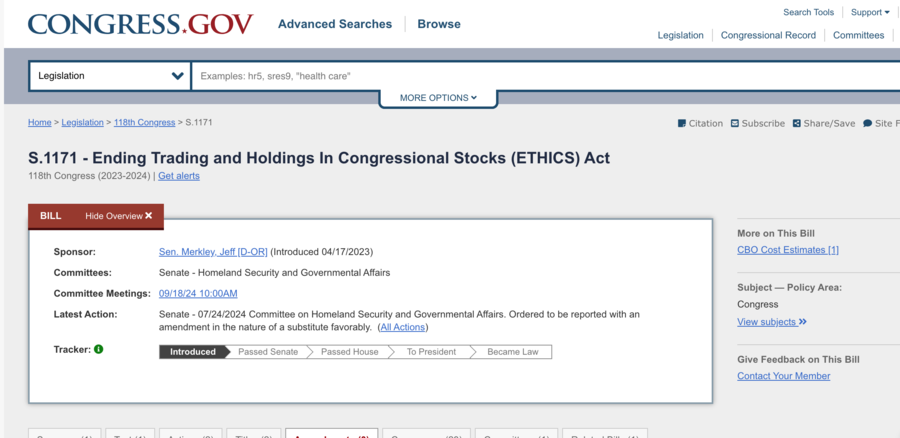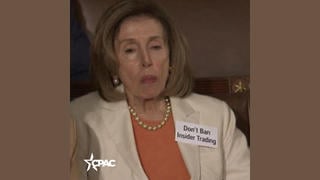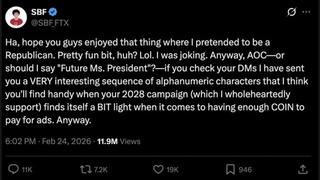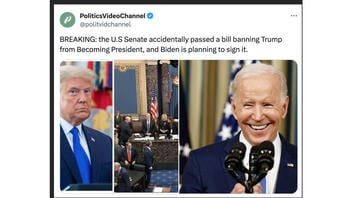
Did the U.S. Senate "accidentally" pass the Ending Trading and Holdings in Congressional Stocks Act, known as the ETHICS Act, which will prevent Donald Trump from becoming president of the United States in 2025? No, that's not true: The act would not ban Trump from becoming president because it "bans actions, not people," a spokesperson for Sen. Jeff Merkley, the author of the bill, told Lead Stories. The spokesperson added that, at the time of writing, the bill had not passed the Senate. The bill would ban members of Congress, the president and vice president and their spouses and dependents from trading stock and other investments that could create a conflict of interest beginning in March 2027.
The claim appeared in a post (archived here) on X on November 19, 2024. It said:
BREAKING: the U.S Senate accidentally passed a bill banning Trump from Becoming President, and Biden is planning to sign it.
This is what the post looked like on X at the time of writing:
(Source: X screenshot taken on Wed Nov 20 15:11:24 2024 UTC)
The next post in the thread on X (archived here) stated:
The U.S senate is close to passing a bill that would ban federal lawmakers -- and presidents -- from owning and trading stocks and other investments. The bill is called, the Ending Trading and Holdings in Congressional Stocks (ETHICS) Act.
Justin Krakoff, deputy communications director for Merkley, told Lead Stories via email on November 20, 2024, that the claim was false:
The ETHICS Act would not 'ban' Trump from becoming president because it bans actions, not people. The bill would require him to change his financial holdings to be in compliance with this law.
At the time of writing, Krakoff said the bill had not been passed by the Senate:
A modified version of the legislation passed out of the Senate Homeland Security and Governmental Affairs Committee in July with bipartisan support (archived here). Senator Merkley continues to do everything he can to get this bill brought to the floor.
There are only financial penalties, not a ban from office, in the bill.
A Homeland Security and Governmental Affairs Senate Committee summary (archived here) explained what Senate Bill 1171 would do:
Senators Peters, Merkley, Hawley, and Ossoff announced an agreement to advance a bill banning Members of Congress, the President and Vice President and their spouses and dependents from trading stock and other investments that could create a conflict of interest, in the form of a substitute amendment to Sen. Merkley's ETHICS Act.
And noted who is covered by the bill:
Bans Members of Congress, the President, and the Vice President from buying covered investments on the day of enactment and from selling covered investments 90 days after enactment. Covered investments include securities, commodities, futures, options, trusts, and other comparable holdings.
Beginning on the effective date March 31, 2027, Members of Congress, the President, the VP, and their spouses and dependent children, are given 120 days to divest all covered investments.
The summary describes the penalties that will be assessed if someone is in violation of the law:
Penalties for violations of the divestment requirements will be the greater amount of either: 1) the monthly salary of the covered official or 2) 10 percent of the value of each covered asset in violation of the law. • Raises STOCK Act penalties for non-reporting from $200 to $500 and requires that disclosures under the STOCK Act be public in a searchable database.
The Congress.gov website (archived here) shows that the bill is only "introduced" according to the tracker, as this screenshot shows:
(Source: Congress.gov website screenshot taken on Wed Nov 20 18:37:04 2024 UTC)
The Senate Committee on Homeland Security and Governmental Affairs voted 8-4 to approve "a revamped version of a bill that would ban members, their spouses and dependents, and the president and vice president from buying or owning individual stocks and other assets," Roll Call reported (archived here) on July 24, 2024.
This claim has also been reviewed by other fact check agencies, including PolitiFact.

